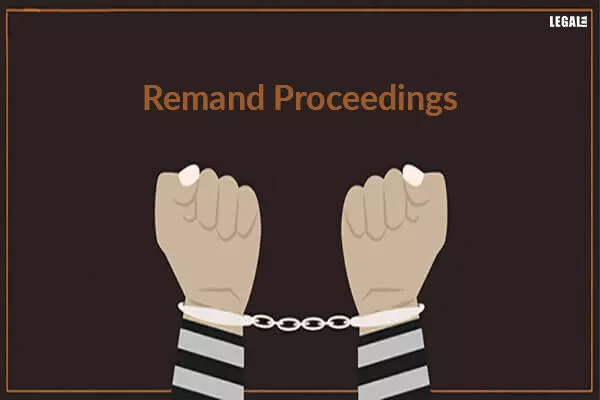- Home
- News
- Articles+
- Aerospace
- Artificial Intelligence
- Agriculture
- Alternate Dispute Resolution
- Arbitration & Mediation
- Banking and Finance
- Bankruptcy
- Book Review
- Bribery & Corruption
- Commercial Litigation
- Competition Law
- Conference Reports
- Consumer Products
- Contract
- Corporate Governance
- Corporate Law
- Covid-19
- Cryptocurrency
- Cybersecurity
- Data Protection
- Defence
- Digital Economy
- E-commerce
- Employment Law
- Energy and Natural Resources
- Entertainment and Sports Law
- Environmental Law
- Environmental, Social, and Governance
- Foreign Direct Investment
- Food and Beverage
- Gaming
- Health Care
- IBC Diaries
- In Focus
- Inclusion & Diversity
- Insurance Law
- Intellectual Property
- International Law
- IP & Tech Era
- Know the Law
- Labour Laws
- Law & Policy and Regulation
- Litigation
- Litigation Funding
- Manufacturing
- Mergers & Acquisitions
- NFTs
- Privacy
- Private Equity
- Project Finance
- Real Estate
- Risk and Compliance
- Student Corner
- Take On Board
- Tax
- Technology Media and Telecom
- Tributes
- Viewpoint
- Zoom In
- Law Firms
- In-House
- Rankings
- E-Magazine
- Legal Era TV
- Events
- Middle East
- Africa
- News
- Articles
- Aerospace
- Artificial Intelligence
- Agriculture
- Alternate Dispute Resolution
- Arbitration & Mediation
- Banking and Finance
- Bankruptcy
- Book Review
- Bribery & Corruption
- Commercial Litigation
- Competition Law
- Conference Reports
- Consumer Products
- Contract
- Corporate Governance
- Corporate Law
- Covid-19
- Cryptocurrency
- Cybersecurity
- Data Protection
- Defence
- Digital Economy
- E-commerce
- Employment Law
- Energy and Natural Resources
- Entertainment and Sports Law
- Environmental Law
- Environmental, Social, and Governance
- Foreign Direct Investment
- Food and Beverage
- Gaming
- Health Care
- IBC Diaries
- In Focus
- Inclusion & Diversity
- Insurance Law
- Intellectual Property
- International Law
- IP & Tech Era
- Know the Law
- Labour Laws
- Law & Policy and Regulation
- Litigation
- Litigation Funding
- Manufacturing
- Mergers & Acquisitions
- NFTs
- Privacy
- Private Equity
- Project Finance
- Real Estate
- Risk and Compliance
- Student Corner
- Take On Board
- Tax
- Technology Media and Telecom
- Tributes
- Viewpoint
- Zoom In
- Law Firms
- In-House
- Rankings
- E-Magazine
- Legal Era TV
- Events
- Middle East
- Africa
Madras High Court rules on remand proceeding
The respondents had earlier approached the Income Tax Appellate Tribunal to settle the matter
The Madras High Court has ruled that the period of limitation under Sections 153 (2A) and 153 (3) is applicable even for remand proceedings before the Assessing Officer (AO), Transfer Pricing Officer (TPO), or the Dispute Resolution Panel (DRP).
It said that the entire proceedings must be conducted within nine months as contemplated under Section 144C (12) of the Income Tax Act.
The division bench of Justice R Mahadevan and Justice Sathya Narayana Prasad observed that in matters of transfer pricing, when the matter is remanded to the DRP, the AO must pass a draft and complete the entire proceedings within 12 months. Else, the very purpose of the extension becomes meaningless.
The respondent, Roca Bathroom Products Private Limited, is a private limited company and a subsidiary of Roca Sanitario S.A., Spain, engaged in manufacturing and marketing bathroom products.
For the Assessment Year 2009-2010, the companies filed the Income Tax Return declaring an income of Rs.21,44,96,661. For the Assessment Year 2010-2011, they declared an income of Rs.50,75,32,362.
The IT Returns were taken up for scrutiny and referred to the TPO under Section 92CA of the IT Act. The TPO passed the orders, which were confirmed by the AO in his draft assessment order. Though objections were raised with the DRP, these were rejected, and directions were issued under Section 144C.
Based on it the second appellant passed the final assessment order and raised a demand under Section 156. Relating to the Assessment Years 2009-2010 and 2010-2011, the respondent approached the Income Tax Appellate Tribunal.
The tribunal allowed the appeal by setting aside the AO's orders and remanding the matter to the AO to refer it to DRP for fresh examination. The assessee was provided sufficient opportunity to present the case.
The respondents stated that as per the tribunal's orders, the AO should have passed the draft assessment orders afresh, within the time limit prescribed under Section 153. Since he failed to do so, the notices issued by the first appellant were barred by limitation.
Thereafter, the respondents filed the writ petitions to quash the notices, and consequently, directed the second appellant to refund the tax amount along with interest under Section 244A. The appellants were also restrained from proceeding further on the assessment years.
Ruling on the matter, the court held, "The DRP proceedings is a continuation of assessment proceedings. Therefore, once the objections are filed under Section 144C (12), a period of nine months is prescribed, within which directions are to be issued by the DRP, failing which any directions are to be treated as otiose."
The court further observed, "The exclusion of applicability of Section 153 or Section 153 B is for a limited purpose to ensure that dehors larger is available and an order based on the directions of the DRP has to be passed, within 30 days from the end of the month of receipt of such directions."




